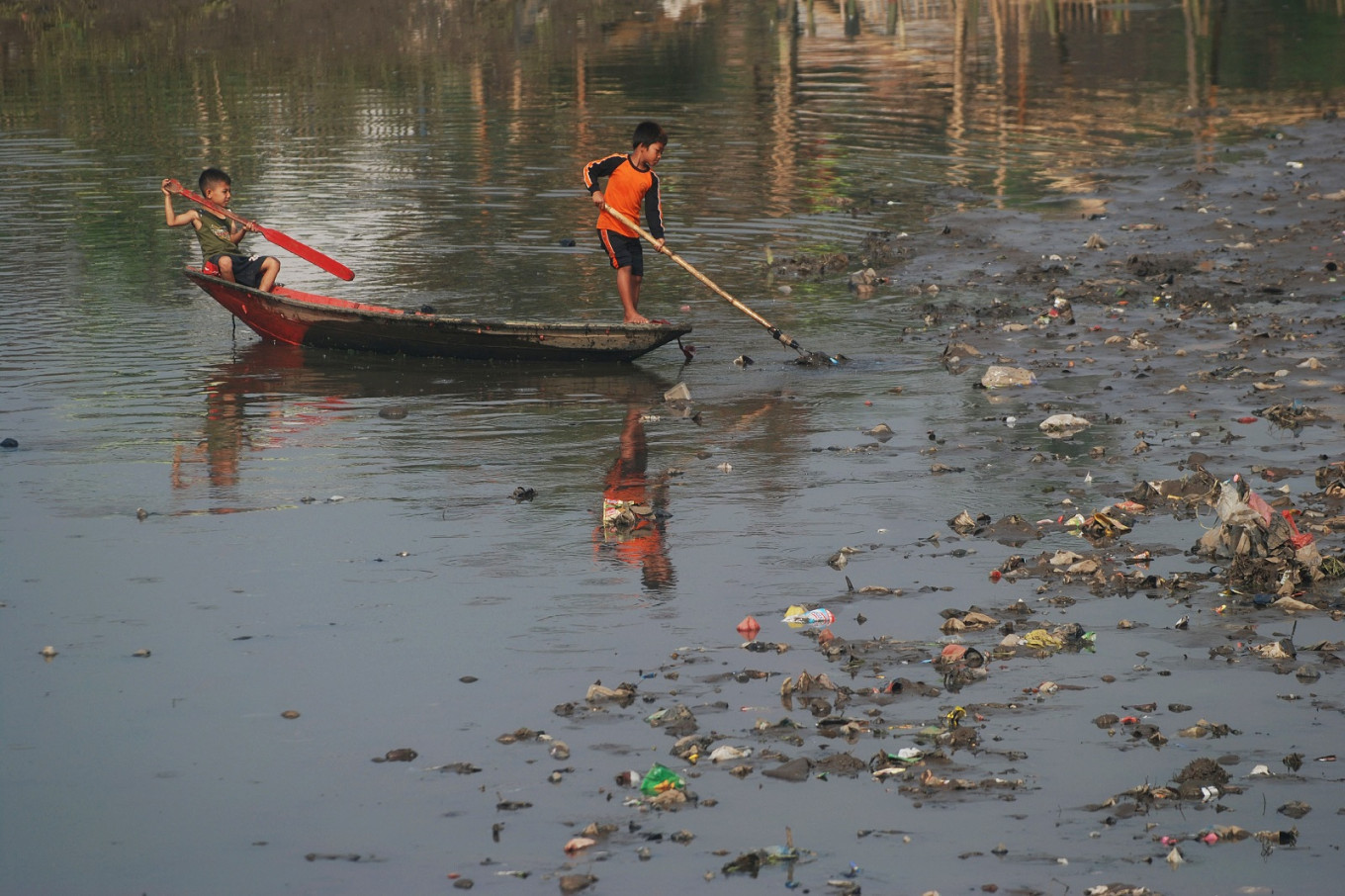Popular Reads
Top Results
Can't find what you're looking for?
View all search resultsPopular Reads
Top Results
Can't find what you're looking for?
View all search resultsIndonesian students win award for plan to clean up Citarum River
Four girls from British School Jakarta have clinched an award for designing an amphibious vehicle to collect plastic trash from one of the world's filthiest rivers.
Change text size
Gift Premium Articles
to Anyone
T
he water of the Citarum River, in many places, is nowhere to be seen, as the surface of the river is hidden by mountains of plastic, garbage and dead animals.
But there may still be hope for the longest river in West Java. Four girls have come up with a project they think could help save the Citarum.
The British International Education Association, a UK-based nonprofit, focused its STEM competition this year on saving the world’s shores from plastic pollution.
A team of four girls from British School Jakarta came away from the competition with a Rising Star Award for their design to address plastic pollution in the Citarum. The girls and their educators hope other young people will learn from their project that environmental issues must be solved through collaboration.
Ines Indira, 14, came across the BIEA STEM competition last year and was intrigued. This year, she helped to form a team with three other girls at BSJ -- 14-year-olds Aliyah Azlan, Caitlyn Limbert and Chiara Hutapea Zhang -- to enter the competition. The team was finalized in mid-March but only had two weeks to work together in person before BSJ shut down because of the COVID-19 lockdown.
That didn’t stop the BSJ team though. The girls continued to work through a group chat and online meetings.
“The girls had different and sometimes competing ideas, but between them, they always found good ways to move forward,” said Jeremy Spackman, head of science at BSJ and the girls’ mentor.
Ultimately, the team landed on a design for an amphibious vehicle to clean up plastic on the Citarum River.
The Citarum is known as the world’s dirtiest river and has suffered pollution from factory waste disposal and urbanization, which has led to more trash being dumped in the river.
The BSJ team’s design includes a main vehicle, known as the mothership, accompanied by smaller robots called minions. The minions would collect plastic and deposit it on the mothership using a combination of GPS, infrared emitters and sensors. Solar cells would be used for power.
Their work won them a Rising Star Award and seems to have impressed educators.
Here is the list of all our BIEA 2020 International STEM Youth Innovation Competition prize winners. Well done for all your incredible work and ideas. With your solutions, we can make a change in the world for good! #bieastem pic.twitter.com/zRGymNsPfC
— BIEA (@BIEAeducation) July 1, 2020
“I am in awe of the resilience of these young people to take up this challenge, confined to their bedrooms with a webcam and their teammates scattered across the country or even around the world,” said Alex Holmes, BIEA head of STEM on the youth submissions this year.
In addition to the award, the BIEA invited the girls to participate in a webinar where they will talk about their design with experts.
Indira said she and her teammates were excited about the response to their project and that she had learned about her own skills and the importance of working together.
“I have learned that by using collaboration, research and problem-solving skills, everyone can come together to tackle the many burning issues in the world,” said Indira.
The girls and their educators hope this project can serve as inspiration for young people to collaborate in the fight against climate change and other environmental issues.
Spackman had his own message to young people around the world.
“Sorry that we have created a catastrophic mess,” said Spackman. “Please don’t follow our lead. You can do better.”
The team seems to be an example of young people who are already doing better.
“Let’s work together and collaborate to tackle this issue,” said Indira. (kes)
___________
The writer is an intern at The Jakarta Post.
__________
Editor's note: Paragraph five and 19 in this article have been updated.







